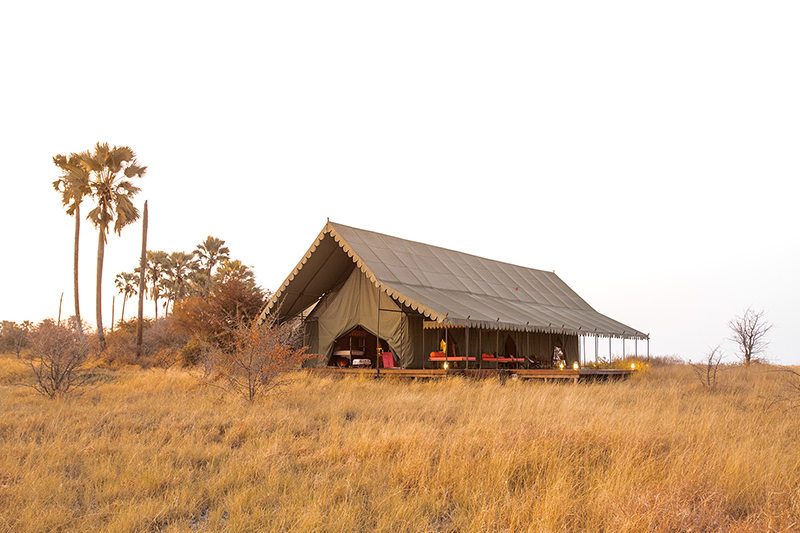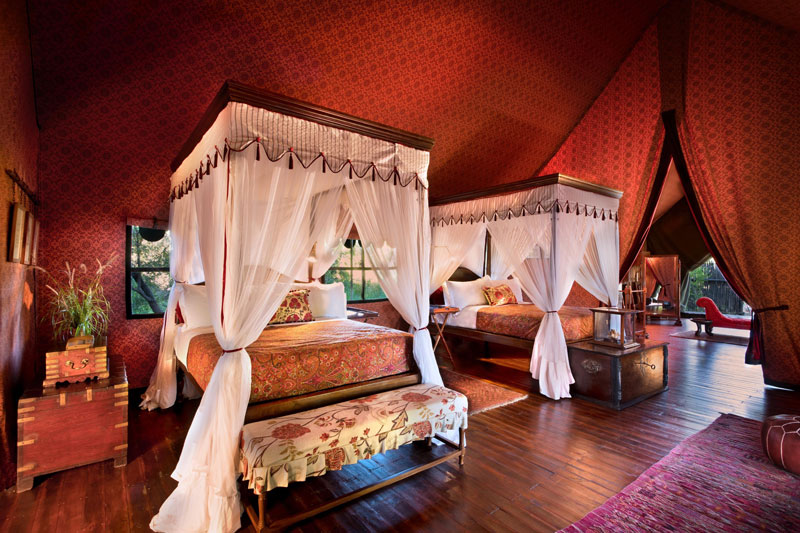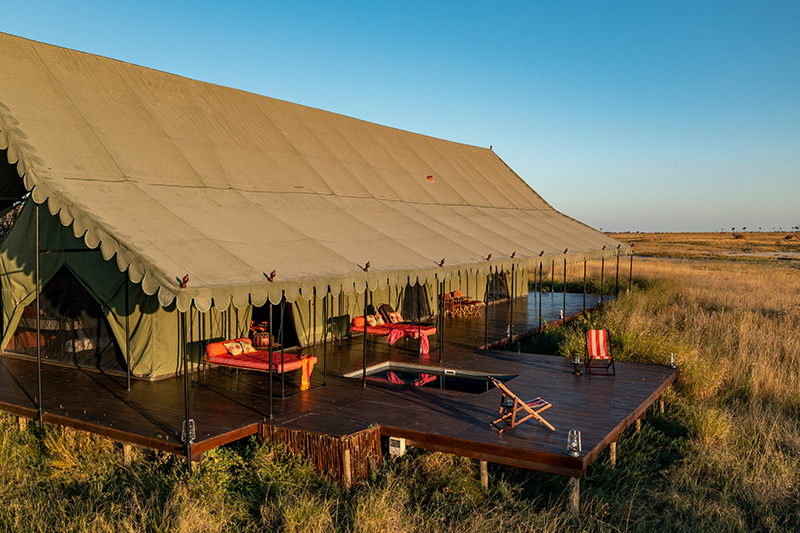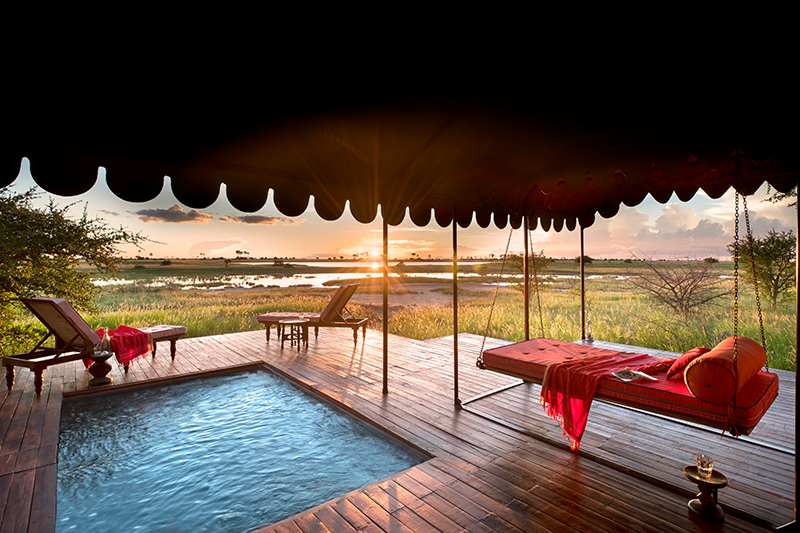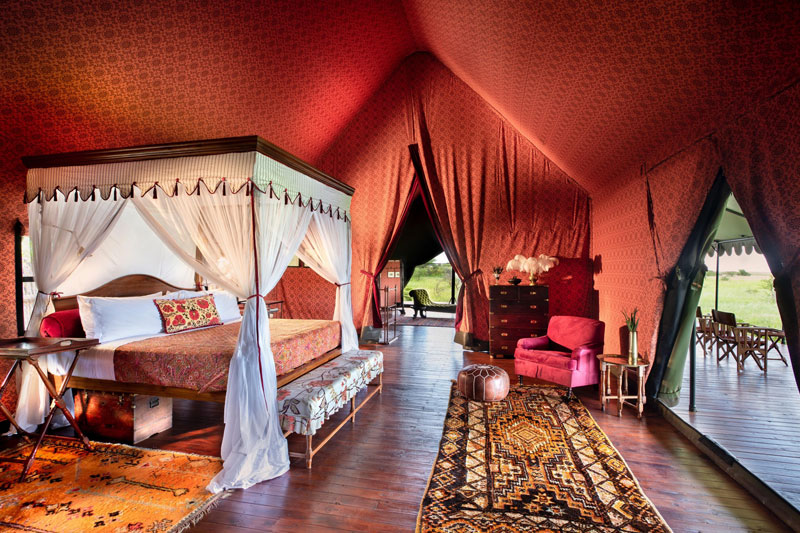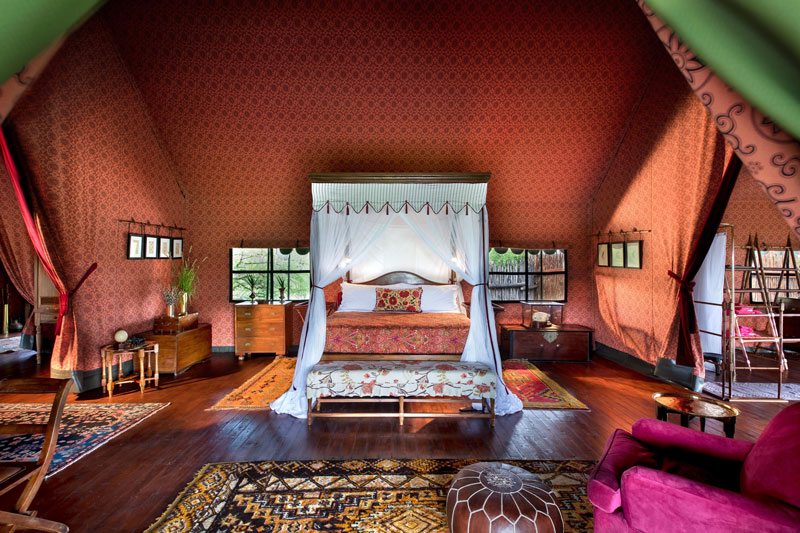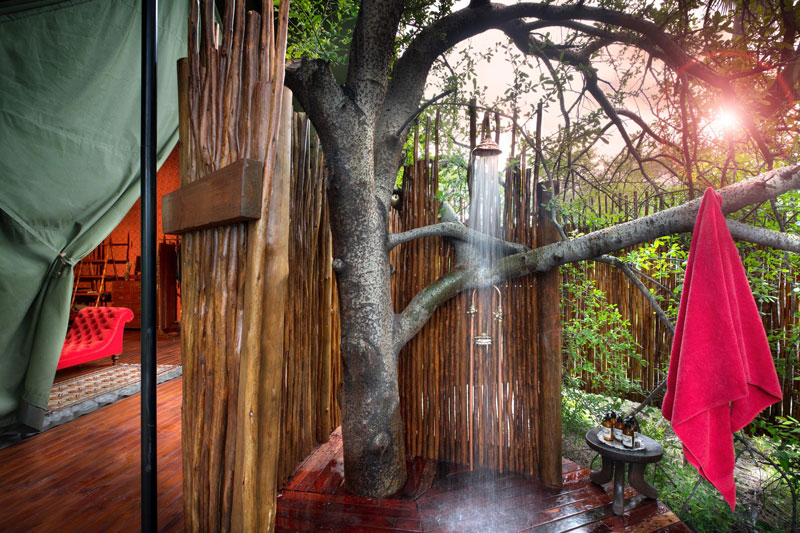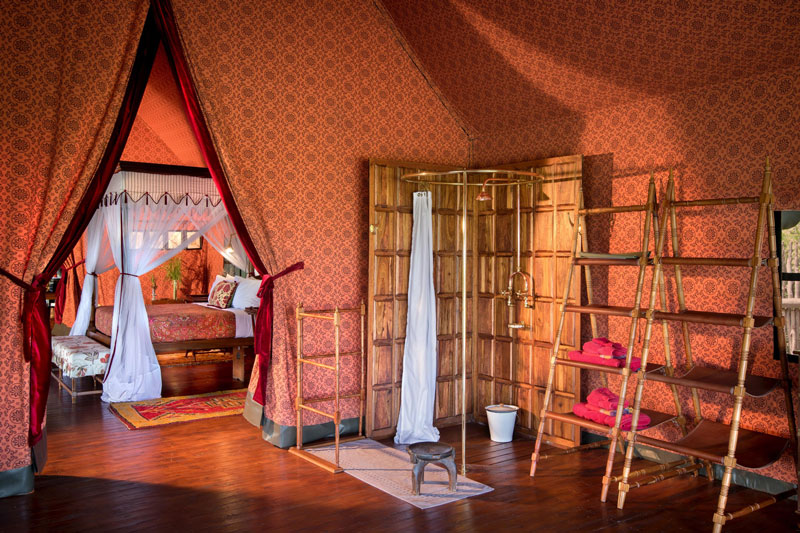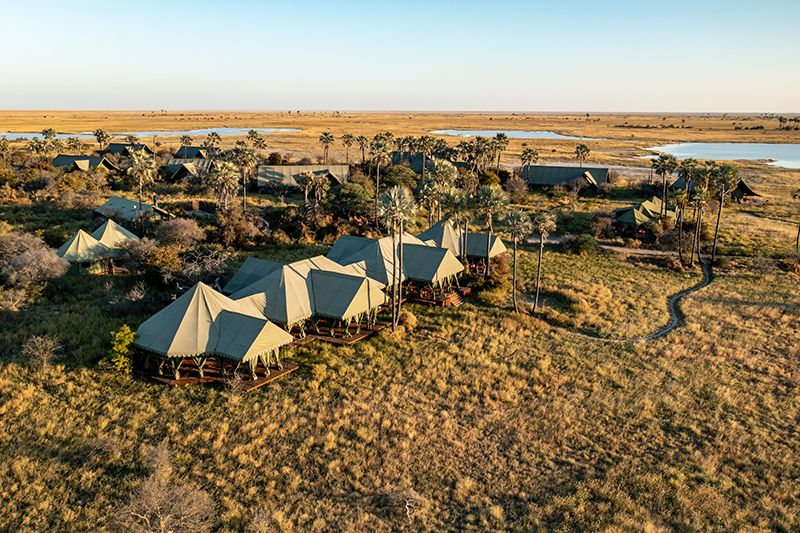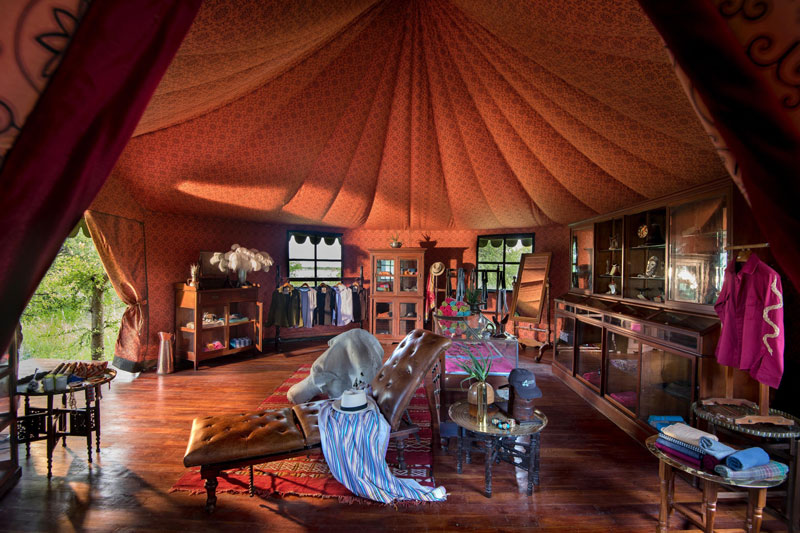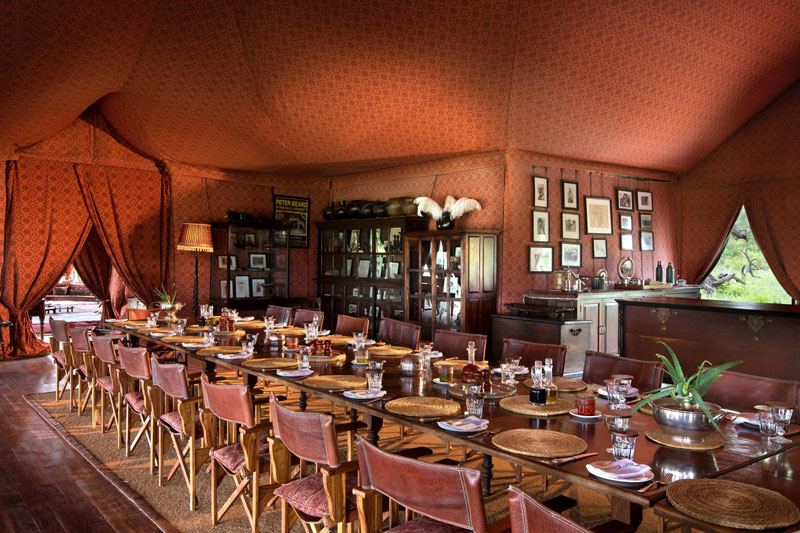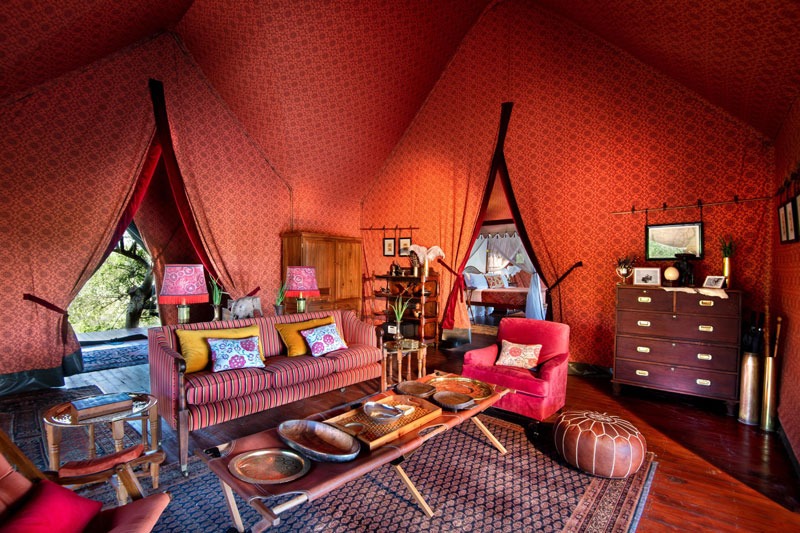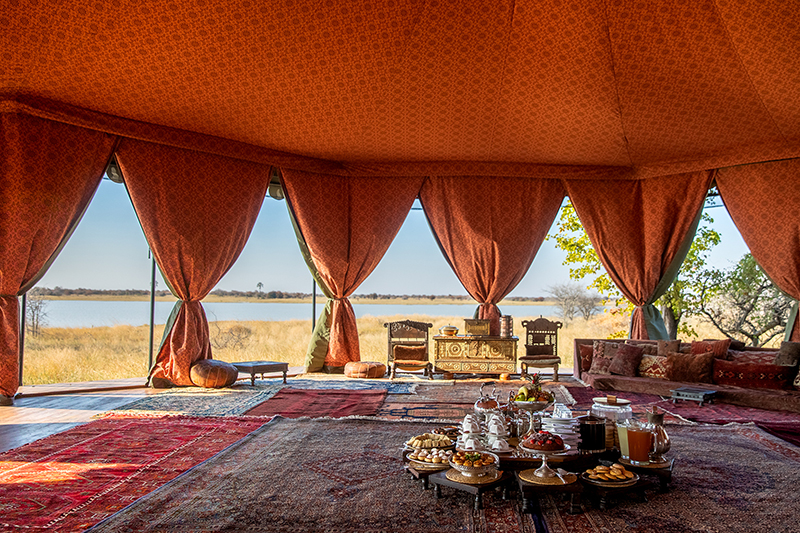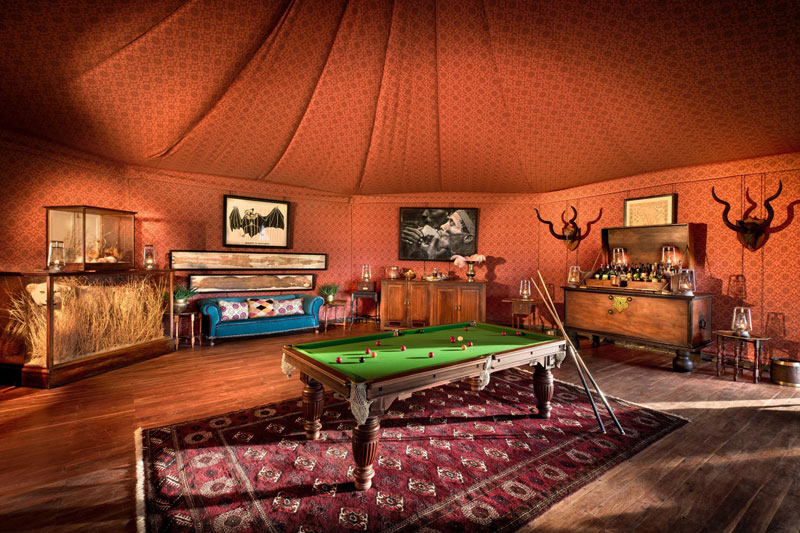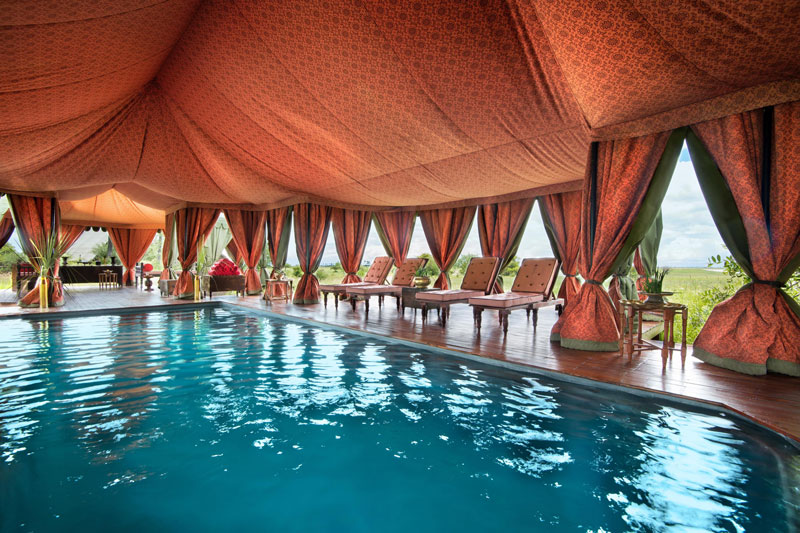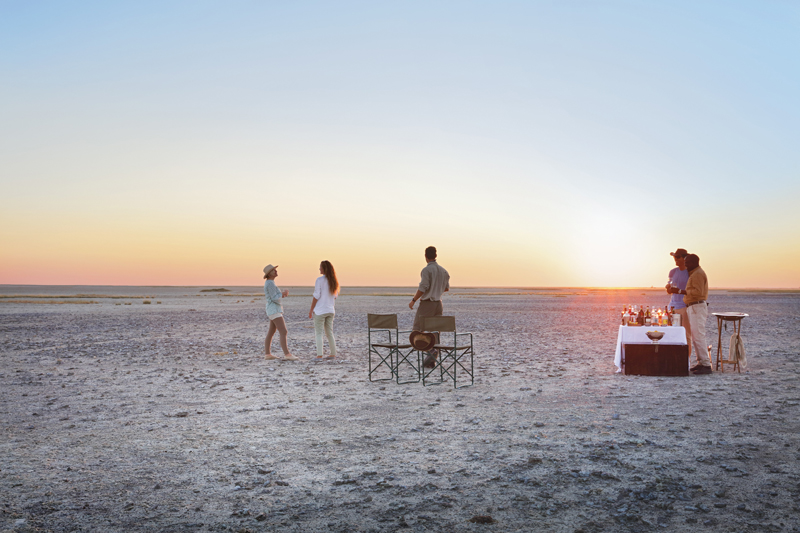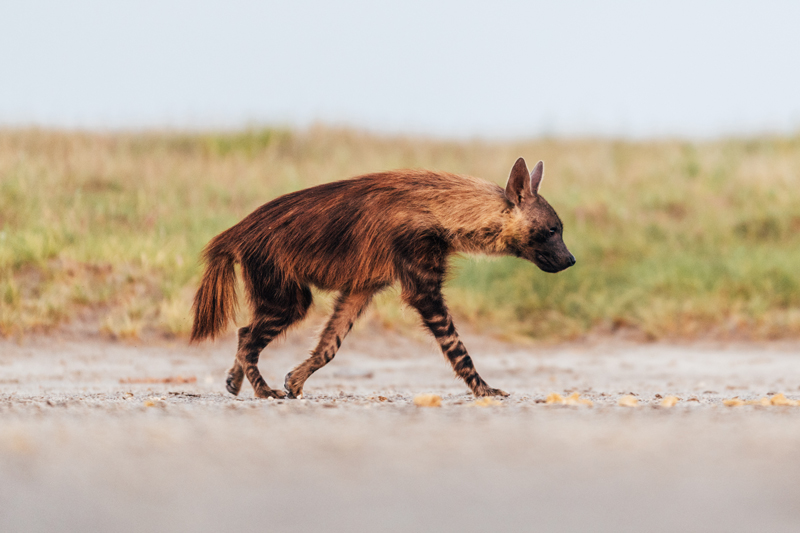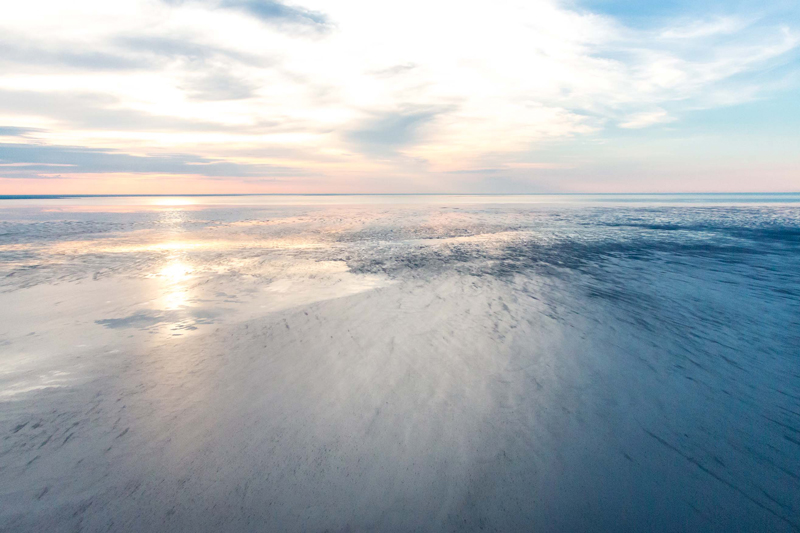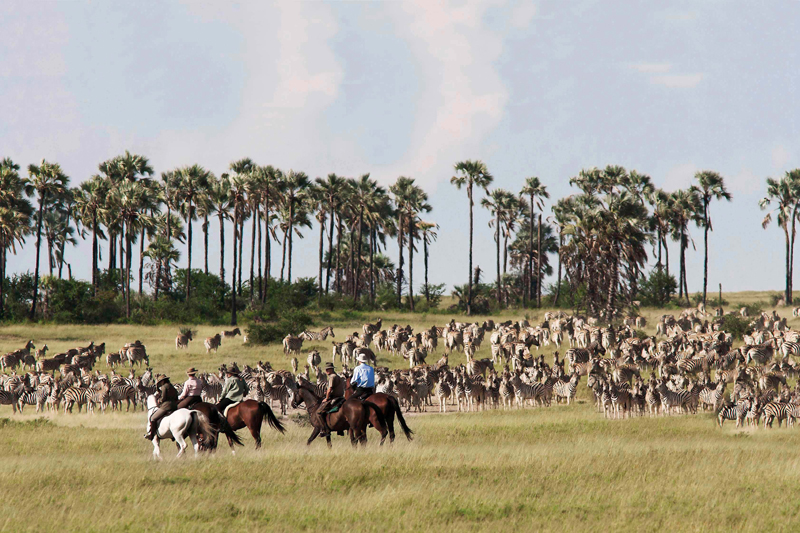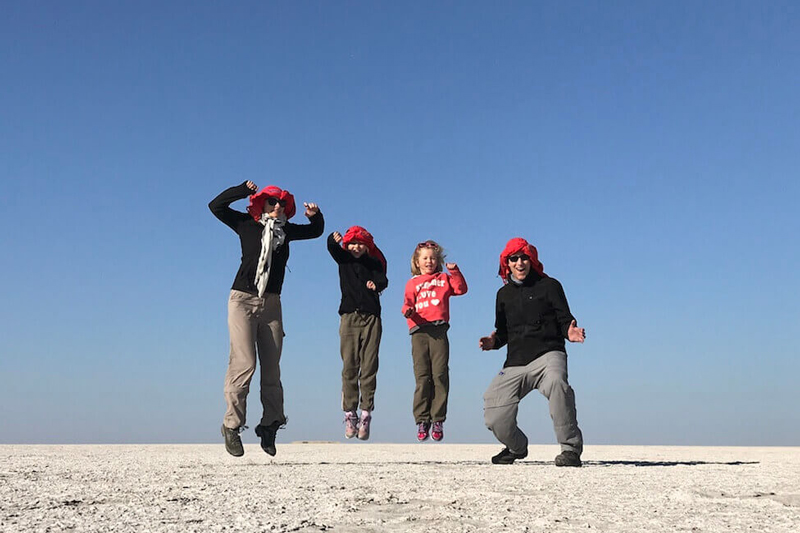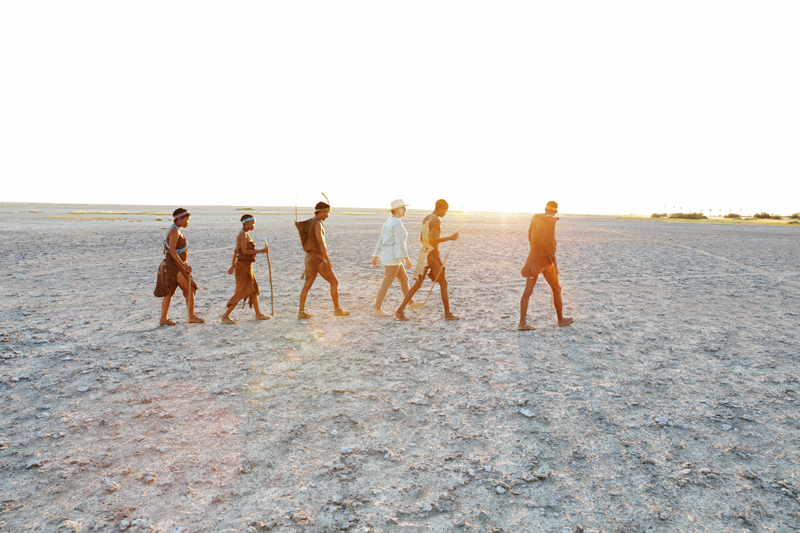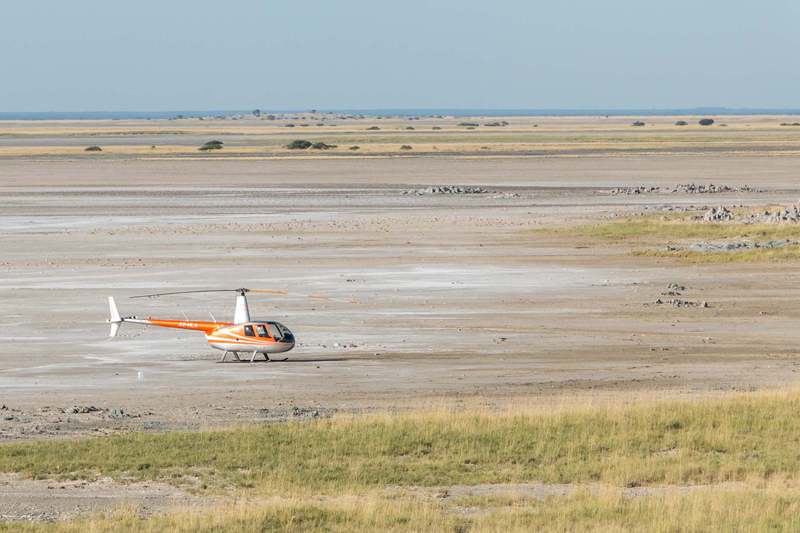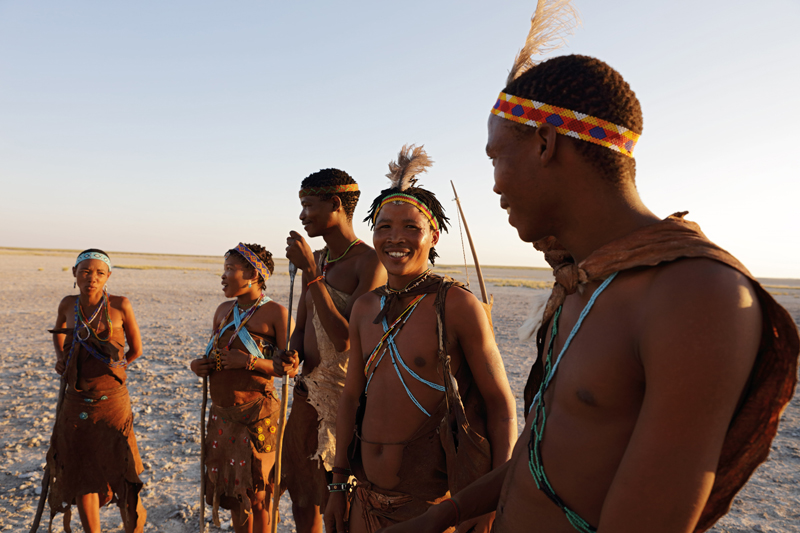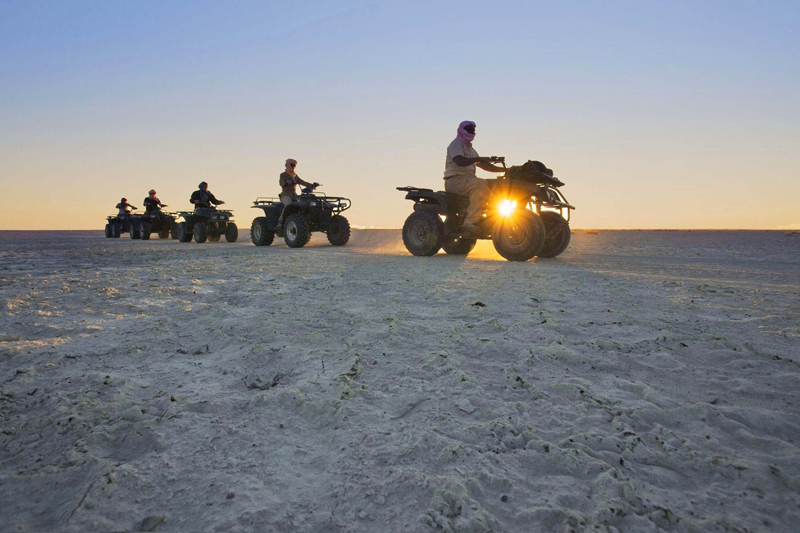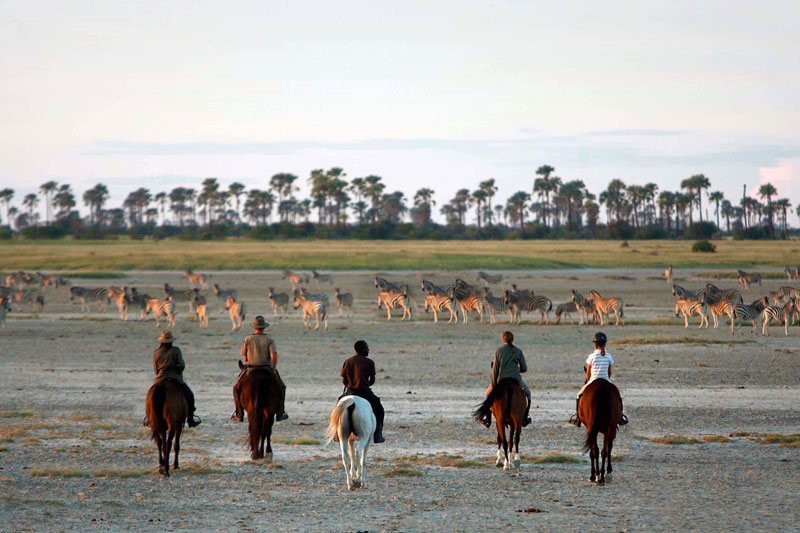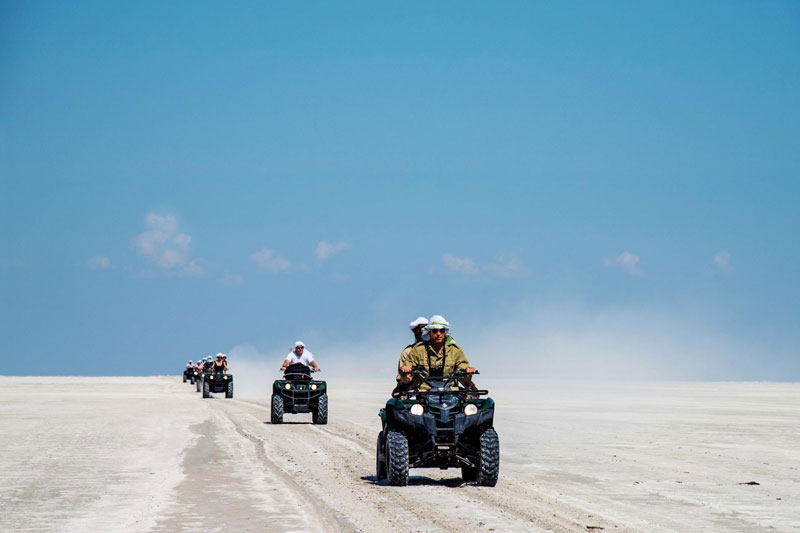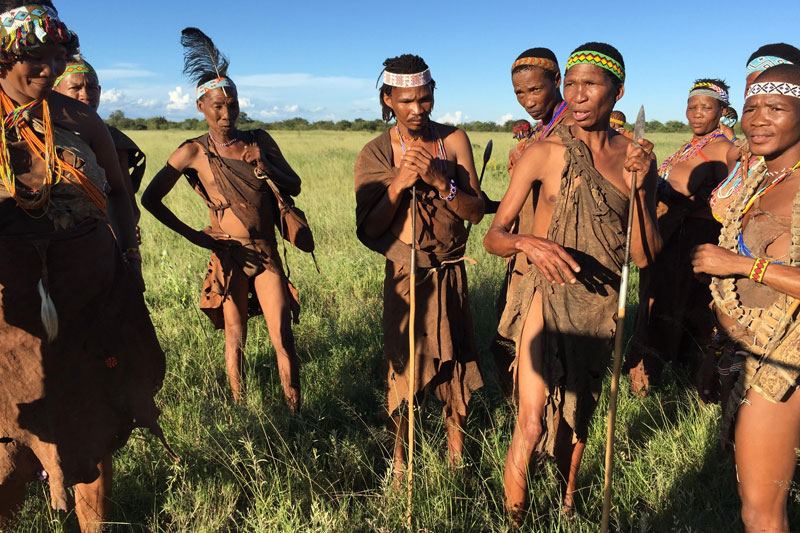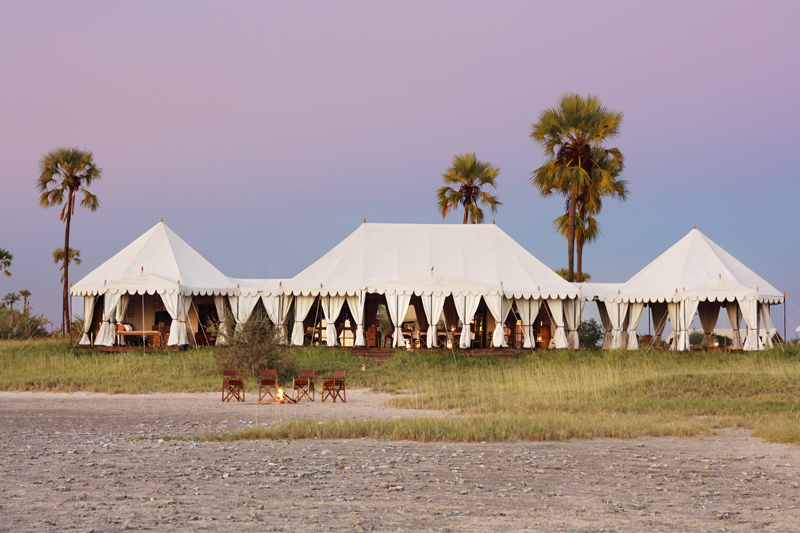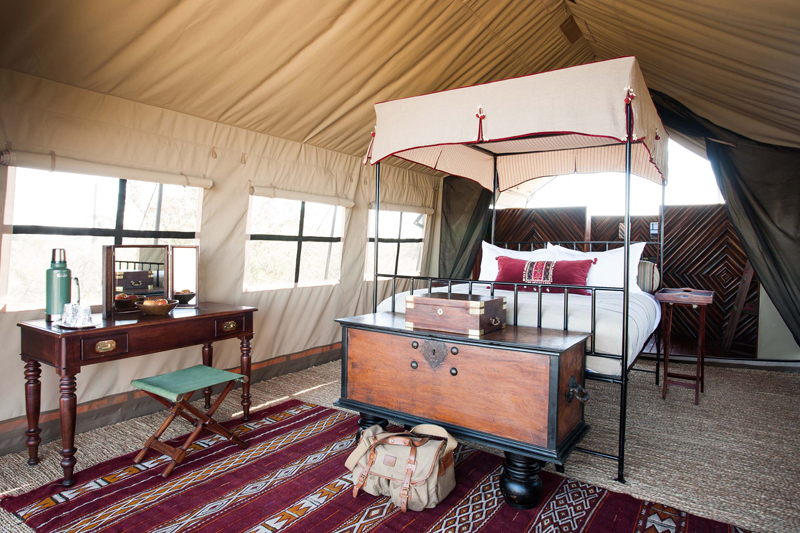Jack’s Camp
Jack’s Camp is an exclusive tented lodge located on a private concession bordering Ntwetwe Pan and the Makgadikgadi Pans National Park.
Jack’s Camp is a very established property and offers a superb Makgadikgadi Pans experience. It is an expensive camp, which limits its appeal to many, but this does of course make it an exclusive camp to visit. The accommodation is very comfortable and a complete rebuild in 2021 has retained the quirky old world interiors whilst overcoming some of the more impractical elements of the original design. However, it is not the accommodation you visit Jack’s Camp for, it is the wonderful guiding, the varied activities, the superb service, the specialist wildlife experiences and the incredible natural scenery that attract you! Provided you are not expecting a slick hotel or highly luxurious accommodation, Jack’s is a wonderful experience.
The Makgadikgadi Pans are well worth a visit for anyone who enjoys exploring different habitats and landscapes, and who is prepared to compromise a little on the big game experience in favour of geographical diversity and more specialist wildlife viewing. The specialist wildlife is worth a particular mention as it is sometimes the key reason for visiting the area – brown hyaena, aardvark, aardwolf and habituated meerkats.
Rooms
Jack’s Camp caters for 18 guests in nine large Bedouin style tents, seven of which feature two queen size beds and two with king size beds. Each tent has en suite plumbed facilities including a toilet and both indoor and outdoor shower facilities. The tents are set on low wooden platforms and look out over the surrounding plains. They are luxuriously furnished with polished floorboards, Persian rugs, draped walls, explorer furniture and four poster beds. The comfortable living areas have a sofa and day bed with views out over the Kalahari. To the front of each tent is a private deck complete with velvet clad loungers and a private plunge pool. The camp is set beneath towering Molokwane palms that provide welcome shade during the heat of the day.
Central Areas
The glamorously styled central mess area comprises a number of adjoining tented areas including a Persian tea tent (where guests gather on low, comfortable Persian style cushions for tea and cake before afternoon activities), a dining tent (including the vintage 36-seater dining table where communal meals are taken), a billiards tent, and a reception area which doubles as a mini-museum showcasing curiosities and artefacts found in the area. There is a shaded swimming pool ‘pavilion’ overlooking the grassland and open pans beyond.
Facilities
Wi-Fi – Yes
Power for charging – Yes
Swimming pool – Yes
Habitat & Wildlife
The Makgadikgadi Pans are not a mainstream safari destination. Together with the adjacent Nxai Pan, the Makgadikgadi Pans cover an area of nearly 5500 sq. miles. The pans, remnants of a huge inland sea, are largely void of vegetation except for a few areas of open grassland and isolated baobab islands. During the rains, from December to March, the pans fill up and attract large numbers of water birds including flamingos and pelicans. Great herds of wildebeest, gemsbok, springbok and zebra also gather, as do predators such as lion and cheetah who move in during this time of plenty. This is also the time that the zebra migration traverses the plains of the concession and is the second largest migration in African. Even the occasional elephant is seen passing through! However, once the dry season sets in, the water reliant species migrate to leave an empty wilderness with an eerie silence and only specialist species remain in the grassland and scrub bush that fringe the pans. Brown hyaena and meerkats are two of the key species of interest found within the Kalahari ecosystem, whilst others include ostrich, aardvark, aardwolf, spring hare, black-backed jackal, African wild cat and porcupine.
The recent introduction of pumped water holes on the local concession is supporting the resident wildlife and encouraging more game to remain in the area during the long dry season. In particular, elephants are being seen more regularly. However, it is a delicate balance and it will take a few years to discover what the carrying capacity of the area is during the dry season.
Activities
Activities vary according to the season you visit. During the dry season, May to October, it is possible to explore the pans by quad bike and this is a key experience which is often undertaken in the afternoon and ends with a sundowner drink overlooking the pans. During the wet season, November to April, the use of quad bikes is limited and quad biking on the pans is not possible; but game drives will focus on the zebra and wildebeest migrations which come into the area at this time of year.
Year round you may enjoy guided walks (hosted by the Zu/’hoasi Bushmen who can show you how they survive in this harsh landscape), the exploration of undocumented archaeological sites and day and night game drives (game drives into the Makgadikgadi National Park are offered for longer stays only). Most game is seen during the wet season, including predators, but night drives are productive all year round and good for specialist species such as brown hyaena and aardvark. A further highlight available throughout the year is a dawn visit to a local habituated meerkat colony where you can sit quietly and watch the meerkats at close range. Beware, they may use you as a lookout point!
For anyone really keen to explore the salt pans in depth by quad bike, camping excursions to a rocky outcrop in the middle of the pans known as Kubu Island may be arranged (this should be booked in advance and is only available during the dry season).
Horse-back safaris are also available and the most recent addition to the activity portfolio is scenic helicopter flights over the pans, the surrounding grasslands and to Kubu Island.
Seasons
Jack’s Camp is open all year round and there are pros and cons at any time of year. Quad biking is only possible during the dry season, but traditional wildlife viewing is better during the rainy season.
Jack’s Camp welcomes children of all ages and is very suitable for families who are looking for an exclusive bush adventure and a varied program of activities. There is currently no dedicated family tent (there are plans for family tent to be available in 2024), but it is possible for one child to sleep on a bed roll on the ground which can be added to normal tents if needed. The swimming pool is a welcome relief from the heat during the summer months, but the water is a bit cold during the cold winter months! Families with children under 12 years of age need to book a private vehicle.
Jack’s Camp support the Makgadikgadi-Nxai Pans Conservation Initiative which promotes the expansion of large mammal migration routes between northern Botswana (Chobe and the Okavango) and the Kalahari Desert (specifically the Makgadikgadi National Park) which have been cut short by the implementation of mass fencing. The aim is to stop the restriction of this movement by working alongside local communities to develop land use that benefits everyone and yet allows the migrating animals, mostly zebra and wildebeest but also elephants and other plains game, to move freely.
Another initiative they support is leopard population dynamics and conservation in the Khwai area of Botswana (eastern Okavango) through the Botswana Predator Conservation Trust. The Trust aims to establish territory locations, sizes and threats to leopards which reside inside the private reserve compared to those whose territories are closer to villages. This information enables them to learn about the survival strategies and intra-species interactions of leopards so they can therefore focus on the areas in need of human-predator conflict alleviation.
Coaching for Conservation’s programme Connecting Conservation Classrooms is all about educating Botswana’s children on the value of wildlife and respect of their environment and uses Natural Selection lodges (of which Jack’s Camp is one) as visitor classrooms.
Together with their sister camps, Camp Kalahari and San Camp, Jack’s Camp also work with and provide employment for local bushman families, helping them to maintain their traditions and pass on skills to their children.



